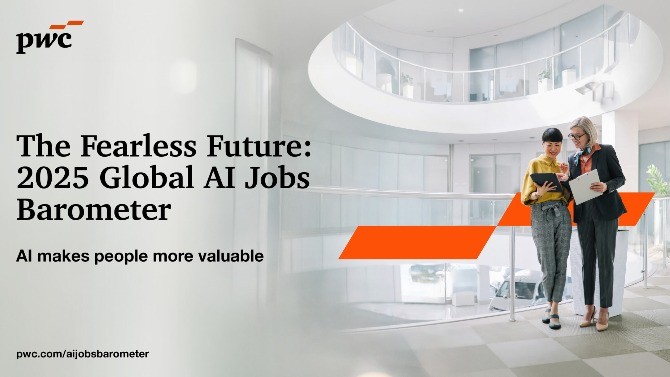Global Perspective: AI Seen as Job Supporter, Not Replacer

Amidst widespread speculation about AI's impact on the workforce, recent findings from prominent organizations like PwC, McKinsey, Deloitte, and the International Labour Organisation (ILO) suggest a more nuanced reality. Rather than widespread job replacement, data indicates a rise in AI-driven roles, increasing wage premiums for workers with AI skills, and a future centered on reinvention rather than obsolescence.
As AI and automation continue to reshape the world of work, anxiety about job loss and future uncertainty is prevalent across various sectors. This has led to increased stress and mental fatigue among employees. While upskilling and reskilling are crucial, they may not be sufficient to alleviate these fears without a clear, data-backed roadmap. To address this, global reports provide evidence that AI is a tool for growth and evolution, not a threat to employment.
Several key insights support this perspective. Firstly, PwC's 2025 Global AI Jobs Barometer, which analyzed nearly a billion job ads, shows a 38% increase in AI-exposed jobs between 2019 and 2024. This report highlights AI's role in boosting worker value, productivity, and wage potential. Since the advent of GenAI in 2022, productivity in AI-exposed sectors surged from 7% (2018-2022) to 27% by 2024. Furthermore, AI-skilled workers earned an average wage premium of 56% in 2024, more than double the 25% premium from the previous year, a trend expected to continue.
Secondly, a joint study by the ILO and Poland’s National Research Institute (NASK), titled ‘Generative AI and jobs: A refined global index of occupational exposure,’ reveals that while one in four jobs globally is highly exposed to AI, this exposure points towards transformation rather than elimination. The study emphasizes that complete automation is limited in many sectors, with human involvement remaining critical for efficiency.
Thirdly, McKinsey’s insights into generative AI suggest a potential for $4.4 trillion in annual global productivity gains. However, realizing this potential hinges on a human-centric approach. Companies are increasingly investing in reskilling, change management, and employee support systems to unlock AI's full value, shifting the focus from machine dominance to human enablement.
Lastly, Deloitte Global’s 2025 predictions report, ‘Generative AI: Paving the Way for a Transformative Future,’ indicates that 72% of global enterprises are already adopting AI-led transformations. This report highlights the emergence of new roles focused on AI governance, ethics, and human-machine collaboration. Strategically implemented AI has led to up to a 40% increase in operational efficiency, positioning AI as a foundation for workplace resilience rather than just a tool.
Ultimately, AI is presented as a partner in innovation and development, augmenting human capabilities rather than replacing them. The evolution driven by AI retains the essential role of human judgment and creativity. With appropriate training and increased awareness, the prevalent fear of job loss can transition into optimism about thriving in an AI-enhanced world.










